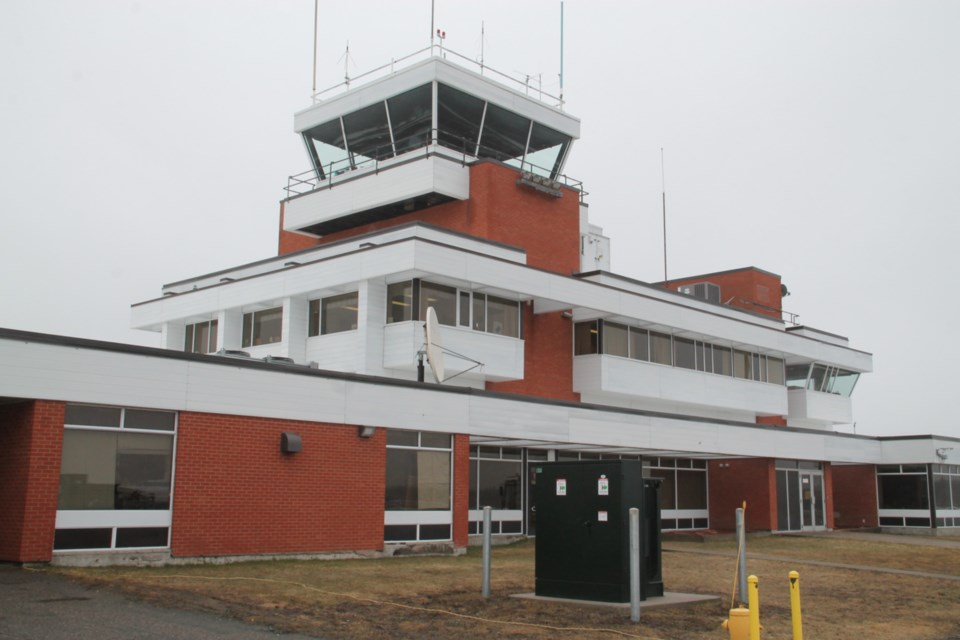In spite of past and current challenges, Sault College’s aviation program is expanding and preparing for better days beginning in the 2021-22 academic year.
A new concern for the college is the possible closure of seven airport control towers across Canada – including the control tower at the Sault Ste. Marie Airport – by Ottawa-based Nav Canada, which owns and operates Canada's civil air navigation system, as the company cuts jobs in the country’s COVID-ravaged aviation industry.
“We’ve presented twice to Nav Canada why this is not a good idea, given Sault College’s flight program, and we sent some more information to them today, so we’re trying to make a strong argument that that tower needs to stay right where it is,” said Ron Common, Sault College's president.
If the control tower at the Sault Airport is shut down, pilots would receive air traffic information from other sources but would still be mainly on their own during takeoff or landing.
“Our students, in order to get control zone experience, would have to fly over to other cities that have control zones, and that’s not optimal that they would do that,” Common said.
Over the last two years, the college has made major investments to improve the aviation program, including renovating hangars, classrooms, and simulator labs; adding four new simulators; and adding two aircraft, Common said.
The school's board of governors also recently approved the purchase of a new aircraft, a million-dollar expenditure Common said is scheduled to arrive in the spring.
“So, we’ve made major investments, and we’ve added staff, and we intend to increase our flying hours annually, all creating a stronger argument why the control tower needs to stay where it is,” Common said.
Nav Canada, Common said, has received the college’s concerns and said that the postsecondary institution has made its case for the Sault Airport’s control tower clear.
Expansion and improvements to the college’s aviation program came after complaints from aviation students and their parents.
They were concerned about their education being delayed due to the 2017 faculty strike, the departure from the program of least one flight instructor for a job elsewhere in the then-booming aviation industry, and in-flight restrictions related to COVID-19.
Due to COVID flight restrictions, Sault College suspended enrolment of first-year aviation students for the 2020-21 school year, but senior students in the program were able to take to the skies over the Sault.
“We didn’t do an intake for an entire year in order to focus on the students that we have in the program, and so as part of the expansion we’re certainly going to be taking (first-year) students in this September,” Common said.
“We’ll try to harmonize this with the aviation industry (one of the hardest hit in the world due to COVID travel restrictions). Aviation was the hottest industry we had. Our graduates were being snapped up, people were desperate for commercial pilots, and then COVID hit.”
“Aviation’s going to recover. I think our students will be well placed when it does,” Common said, looking forward to a post-COVID world.
Rick Webb, a spokesperson for Sault College, noted in an email that the Nav Canada manager responsible for reviewing operations at the Sault Airport is actually a former flight instructor, commercial pilot and worked in aviation operations management.
"The manager and staff have demonstrated a keen and honest interest in Sault College’s flight training operation,” Webb wrote.
He said the college’s Flight Training Unit (FTU) has been expanding its daily operating hours, Webb said, noting that, in the fall of 2020, FTU movements were up 25 per cent in comparison to 2019.
"Once we emerge from the pandemic and safety protocols are reduced, the FTU will see further increases in aircraft movements,” he said.
Sault College believes the aviation program’s very existence and its plans for the future make a control tower at the Sault Airport a necessity.
The school estimated it would contribute approximately 70,000 movements at the Sault Airport in 2021, increasing throughout the year to 90,000 movements by 2022.
“The typical threshold requiring a tower at an airport is 60,000 movements, but complexity of the airspace also has an impact on the level-of-use decision (from Nav Canada),” Webb wrote.
“The proximity of the U.S. airspace and Lake Superior – with the mix of commercial traffic, military aircraft, MNR, the growth of local maintenance facilities and Medevac with the FTU – makes the task of managing our airspace too challenging to be left without the service of a tower and a Positive Control Zone.”
– SooToday




